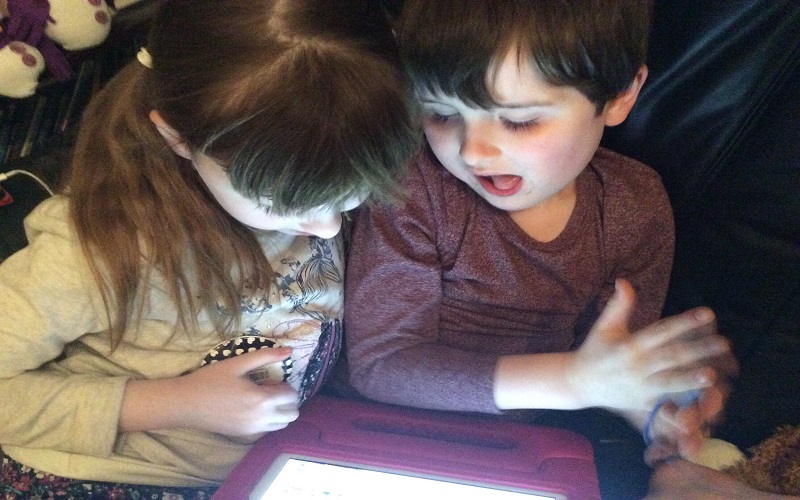Although we were all very much individuals there were times I recall the whole family playing board games or card games together and many hours spent together in the summer out in the garden.
There was almost 9 years between the oldest and youngest but somehow my parents would manage to find something we could all enjoy at our own level.
I now have two children of my own and despite the fact they are exactly the same age I really struggle to find things they can do together. The reason for that is simple: my son is disabled.
It is so much harder for families to help their children bond when one of the children has a disability.
Everyday family dynamics can make finding activities suitable for everyone almost impossible and things others take for granted such as access or suitable toilets suddenly become a huge problem.
So how can you help siblings bond when one of your children has a disability?
Here are three suggestions you may want to try:
Sensory Time
While one of my children can read, write, do her times tables and loves to dance to jump start Johnny her brother cannot speak, can’t write or read and only just has enough co-ordination to walk at 9 there is one thing they both enjoy: water play!
This joint love of water has helped them bond so much.
From when they were three and a half and shared the water and sand tray in the garden to now playing together with a playmobil swimming pool, water really seems to bring them together.
My son has a high level of personal care needs so while it would be much more convenient to simply take him swimming on his own I try and get another adult to come with me so that I can use swimming as a bonding time too.
Other sensory activities they both enjoy together are water beads, painting, and even flapping at hand dryers!
My son is a huge sensory seeker but could never work out how to make the hand dryers work so his sister presses the button or puts her hands under and delights herself in laughing and flapping in delight with her brother.
Moments like this are beautiful.
Helping them care:
My son’s needs are high and he is unable to dress himself, bath himself or even put a straw into a carton of juice.
While I do not want his sibling to feel her sole purpose in life is to care for her brother I do encourage her to help because it helps foster responsibility in her and helps secure the relationship between both children.
It’s so healthy for my son to realise and understand that other people can meet his needs and so good for his sister to give her the confidence to see she can help.
While I would never ever ask her to do anything too physical or personal or even medical she absolutely loves helping to wash his hair, typing something into YouTube search for him or picking up a toy he has dropped.
Their relationship will never be equal in terms of ability but there are benefits to her helping care for everyone.
Shared experiences:
One of the many things siblings of disabled children often miss out on is the many shared experiences other siblings take for granted.
Often disabled children are educated in separate schools away from their siblings and many of their social activities are done without their sibling around.
There is a definite balance needed between time apart and time together so I try and make a very special effort to do things with both my children.
Some activities I have found that work well are ten pin bowling (my son uses the ramp and although not able to see the pins fall he can hear them and enjoys the sound), swimming, soft play (balls pools especially) and train rides.
I take photographs often and we sit together later and talk about the fun we have had. Although my son can’t speak he points and flaps and smiles as we remember together.
Quality time together as a family is priceless.
I am not going to pretend it is easy. It takes so much planning and co-ordination on my part to help my children bond when naturally their lives are so different.
The one thing I am determined about though is that disability should not be a barrier to my children being friends.
Thankfully my hard work seems to be paying off when I catch moments like this (see image).
That makes it all worthwhile!
